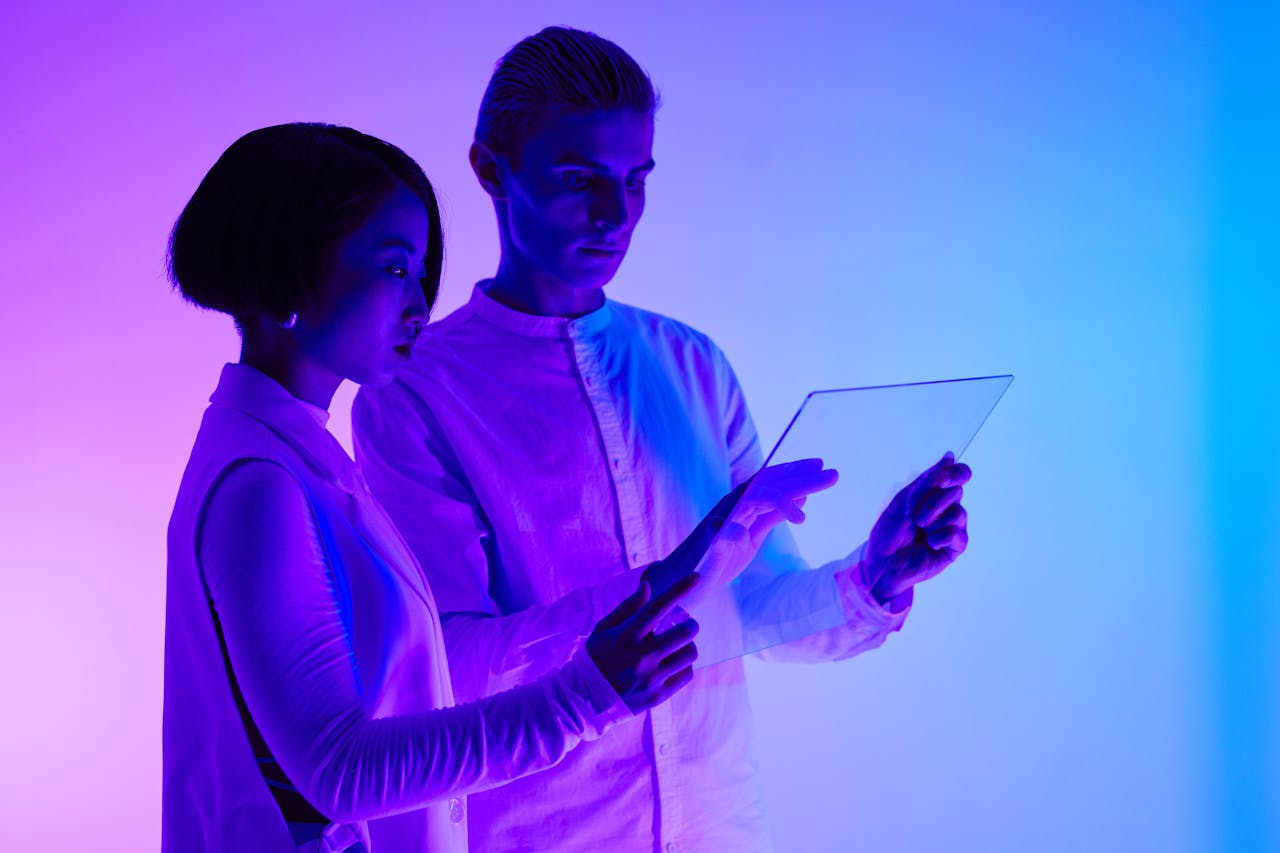Innovative Work Models for the Future

According to a recent Deloitte study, 76 percent of executives say their biggest challenge is scaling innovation across the organization. While technology races forward, many leaders still struggle to evolve their work models to keep up. The real question isn’t whether change is coming, it’s whether companies are designing systems where both people and technology can thrive together.
On The Bliss Business Podcast, Ashley Wright, founder and CEO of Plantista, joined hosts Stephen Sakach and Mike Liwski to discuss how AI can scale human expertise, the mindset shifts required for innovation, and why empathy and humility must remain at the heart of every future-forward workplace.
From Family Roots to Future Growth
Ashley’s journey began long before she became a tech founder. Growing up in small-town Illinois, she watched her mother transition from factory work to horticulture through a state-funded education program. That experience not only shaped her understanding of resilience and reinvention but also instilled a deep appreciation for the family-owned garden centers that form the heart of the green industry.
After two decades in corporate strategy roles at companies like General Mills and McKinsey, Ashley returned to her roots. She noticed a major shift in the industry: despite millions of new hobbyists entering gardening during the pandemic, most garden centers lacked the digital tools to serve them. Many still ordered inventory manually, relying on visual inspections rather than data.
Recognizing the opportunity, Ashley co-founded Plantista to help small, independent garden centers scale their expertise using AI. “This industry is inherently ungoogleable,” she said. “AI allows us to capture and share expertise that used to be trapped inside people’s heads.”
Redefining Expertise in the Age of AI
Ashley compares AI’s role in the workplace to the calculator’s introduction decades ago. At first, it felt like cheating, but soon it became an accepted tool that expanded human capability. “It’s not about replacing expertise,” she explained. “It’s about scaling it.”
The key shift for leaders, she said, is moving away from the idea that they must know everything. Instead, the modern leader knows how to access and share knowledge efficiently. “You don’t have to take a leap off a cliff,” Ashley said. “Just take one step, learn, measure, and iterate. That’s how real innovation takes root.”
Her iterative approach mirrors design thinking—start small, test ideas, and evolve continuously. Whether it’s improving how employees access internal information or automating repetitive design tasks, the goal is to use AI as a multiplier, not a replacement.
Embedding Innovation Through Collaboration
Ashley acknowledges that innovation looks different in a startup than in a Fortune 500 company, but the principles remain the same. At Plantista, she built a Customer Advisory Board from the company’s first five clients, giving them equity and a seat at the table. This group meets quarterly to vote on product features, test new ideas, and co-create the roadmap.
“We never assume we know what their problems are,” she said. “We let them tell us what matters most.”
Beyond customer input, Ashley actively encourages her team and even short-term contractors to share ideas. “Everyone comes with a different frame of reference,” she explained. “You won’t see your blind spots until someone else points them out.”
Her focus on inclusion and curiosity fosters a culture of continuous learning—where humility, not hierarchy, drives progress.
Aligning Incentives and Building Trust
One of the biggest barriers to innovation, Ashley shared, is misaligned incentives across teams. Drawing from her consulting background, she emphasized the need to align compensation and rewards with shared goals rather than siloed wins.
“People will naturally do what makes sense for them,” she said. “So leaders must make sure those incentives align with what’s best for the whole organization.”
Her analogy captures it best: don’t just celebrate the person who scores; celebrate the teammate who made the pass. Recognition builds trust, and trust fuels collaboration—the foundation for scalable innovation.
Purpose as a Competitive Advantage
EY research shows that purpose-driven companies outperform their competitors by 42 percent. For Ashley, purpose is not just a leadership principle; it’s her compass. “You can drink a venti coffee or make a great playlist to stay motivated,” she said, “but purpose is what sustains you.”
Plantista’s mission is deeply personal: to help small, independent garden centers thrive in an era dominated by big-box retailers. These businesses carry generations of expertise and heart, but many risk disappearing without digital transformation.
“If they don’t adopt AI to scale what makes them special, we’ll wake up in five years to a world where all the plants you can buy come from the same fifty options,” she warned. “That’s not a world I want to live in.”
Plantista’s work not only helps preserve local entrepreneurship but also contributes to environmental sustainability through firewise landscaping, pollinator-friendly planting, and drought-tolerant design.
Human Touch in a Tech-Driven World
While some small business owners fear that AI will erode their human touch, Ashley believes the opposite. She sees AI as a bridge that connects people to their creativity and curiosity. “It’s the conduit that opens the door,” she said.
By helping customers find the right information in their preferred way—often online—AI builds confidence and lowers the barrier for human connection. “Once they feel understood, they’re more likely to engage in person,” she said.
This insight aligns with Ashley’s broader philosophy: people buy from those who make them feel understood, not from those who try to make them understand.
The Role of Love in Leadership
When asked about love, compassion, and empathy in business, Ashley didn’t hesitate. “Love absolutely belongs in business,” she said. “It’s about understanding where someone is coming from and meeting them there.”
She explained that empathy transforms transactions into relationships and turns customers into advocates. “It’s not about changing people,” she added. “It’s about connecting with who they already are and inviting them into something meaningful.”
Her approach captures the essence of conscious leadership—balancing innovation with humanity, and purpose with profit.
Key Takeaways
• AI should scale human expertise, not replace it.
• Innovation thrives on iteration, collaboration, and curiosity.
• Align incentives to build cross-functional trust.
• Purpose-driven companies create lasting competitive advantage.
• Love, empathy, and understanding are the foundation of modern leadership.
Final Thoughts
The future of work will belong to leaders who understand both systems and souls. As Ashley Wright reminds us, technology may transform how we work, but empathy will determine how well we work together.
Innovation without love is automation. But innovation with empathy creates impact that lasts.
Check out our full conversation with Ashley Wright on The Bliss Business Podcast.



